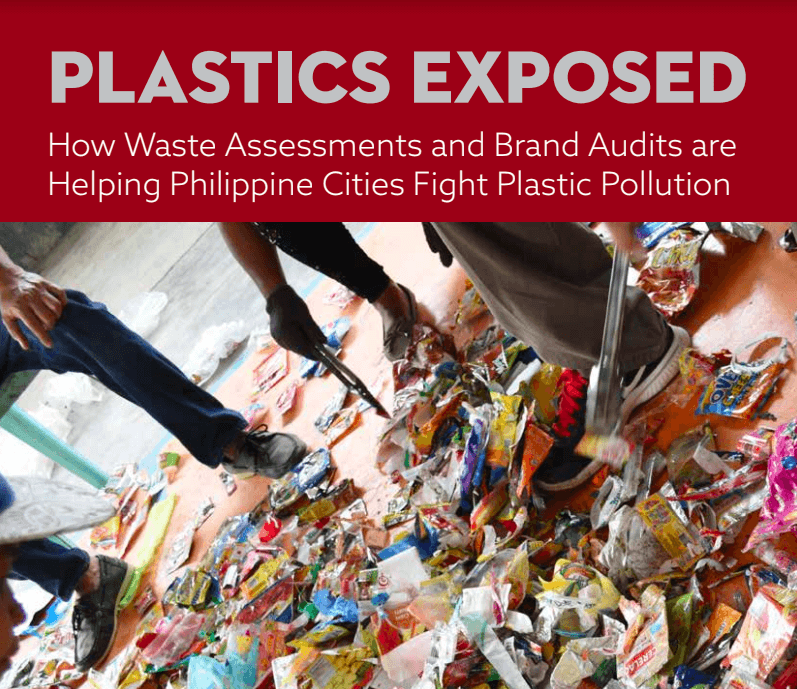Swiss food giant Nestlé and consumer goods company Unilever have been found to be top plastic polluters following Philippines brand and waste audits.

Image: The report released by GAIA showed plastic pollution crisis in the Philippines. Photo: Courtesy of GAIA.
The Global Alliance for Incinerator Alternatives (GAIA), a global network of more than 800 grassroots groups, NGOs, and individuals, has released a report titled ‘Plastics Exposed: How Waste Assessments and Brand Audits are Helping Philippine Cities Fight Plastic Pollution’.
GAIA report shows that plastic pollution crisis in the Philippines is based on data collected from household waste assessments and brand audits (WABA) conducted by Mother Earth Foundation (MEF) in six cities and seven municipalities across the country in the past five years.
The environmental organization GAIA, through latest report, emphasized that single-use disposable plastic is a big obstacle for waste and resource management, and called on governments and manufacturers to regulate, and stop producing, single-use plastics.
The report, carried out in partnership with the University of Santo Tomas’ Research Center for Social Sciences and Education, offers new data exposing Nestlé and Unilever’s overproduction of single-use sachets that are marketed in the Global South, but not other parts of the world.
Mother Earth Foundation chairman Sonia Mendoza said: “Cities and municipalities can fight back against plastic pollution using data from waste assessments and brand audits. Cities can strengthen regulations, improve waste management services, and reduce waste volume and corresponding management costs.
“They can also use the data to pursue plastic ban or regulations, and to compel companies to acknowledge their liability for plastic pollution.”
The report showed that the cities and municipalities around the Philippines are struggling against plastic residuals. The organization has decided to launch the report ahead of the UN Environment Assembly meeting, where plastic pollution will be discussed.
Based on the collected data, GAIA has calculated estimated daily and yearly plastic usage throughout the country to provide new quantitative evidence about plastic pollution in the Philippines.
GAIA said that with the projected increase in plastic production worldwide, Philippines national governments, along with local government authorities need robust data and effective strategies to address the looming plastic pollution crisis.
The figures in the report showed the volume of plastic waste generated daily is beyond the capacity of barangays, cities and municipalities to manage, and the only way to manage single-use plastic is to make less of it.
GAIA Asia-Pacific executive director Froilan Grate said: “The problem is the huge amount of single-use plastics being produced—not just the way waste is managed. Plastic is a pollution problem, and it starts as soon as the plastic is made.
“Clean-up is left to cities and municipalities who use taxpayers’ money to deal with the waste. Companies create the waste in the form of plastic sachets, and profit from these, in the millions. They must be made accountable for the pollution.”
